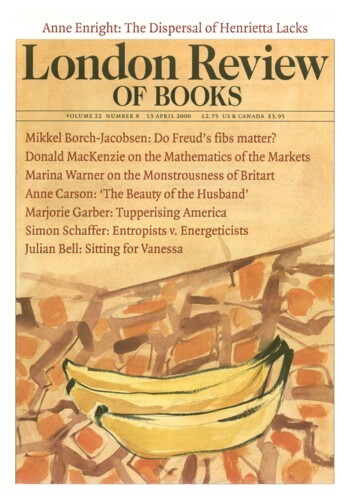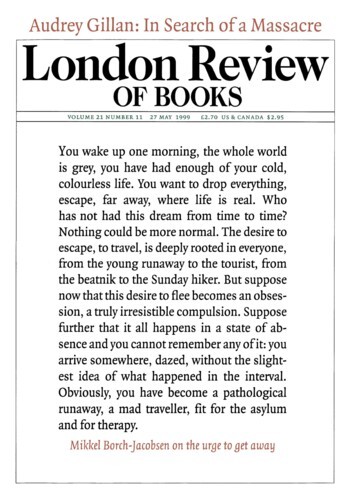How a Fabrication Differs from a Lie
Mikkel Borch-Jacobsen, 13 April 2000
‘Was Freud A Liar?’ Ever since Frank Cioffi had the audacity to ask this question in 1973, it has continued to rock the world of psychoanalysis. Till then, things had been so simple. Children of the ‘Freudian century’, we had all learned to venerate in Sigmund Freud a man of ‘absolute honesty’ and ‘flawless integrity’, as his loyal biographer Ernest Jones called him. How many times were we told that? It was his passion for truth that enabled him to confront the demons of his own unconscious and to lift the multisecular repression that weighed on sexuality, despite the ‘resistance’ of his patients and the attacks of his colleagues. It was this scientific probity, too, which made him acknowledge his error about the fantastic ‘scenes’ of incest and sexual molestation that his patients had been bringing to him, despite the stinging professional setback that this represented for him. In Freud, science coincided with the moral fibre of the scientist, whose edifying biography we never tired of reading: Anna O.’s miraculous ‘talking cure’, the break with Josef Breuer regarding sexuality, the solitary crossing of the desert, the painful abandonment of the ‘seduction theory’, the heroic self-analysis, the tearing away from the transference on Wilhelm Fliess, the stoicism in the face of his colleagues’ attacks.‘


